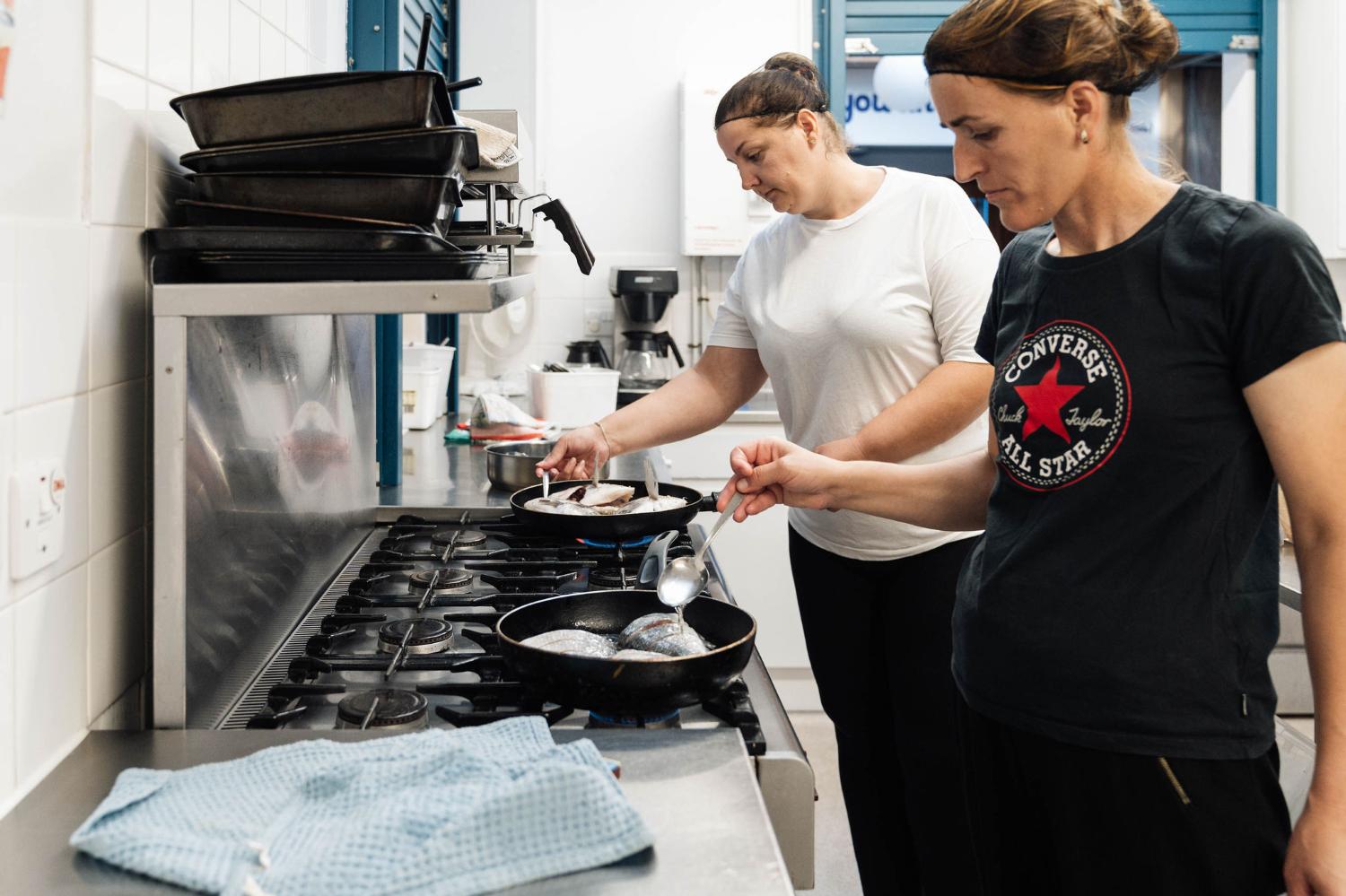
Community Kitchens – An exciting mental health initiative in Surrey
A collaboration between First Community Health and Care, CSH Surrey, Surrey County Council and the voluntary and charity sector.
Watch our Community Kitchens video
This short film tells the story of how Community Kitchens help improve mental health and address wider determinants of health of asylum seekers in Surrey Heartlands.
It features Community Kitchens chefs, guests, members of the Children and Family Health Surrey Inclusion Team, and volunteers, all experiencing the joy of preparing familiar food and eating in a social setting.
Over the past year, Lisa Gavin, Clinical Service Manager and her multidisciplinary nurse-led inclusion team at Children and Family Health Surrey have been setting up Community Kitchens, a mental health initiative to support asylum seekers in the local community.
Lisa is at pains to point out that this has only been made possible with funding from Surrey County Council and with the help and support of local volunteers and charities, who provide kitchens and dining areas in venues including churches and village halls.
The team started the Community Kitchens in response to the situation asylum seekers find themselves in. They currently live in hotels and day in day out have a restricted diet which they eat in their room.
Lisa explains:
This not only leads to poor nutrition but can also cause loneliness and despair. As well as the nutritional benefits, there is a hugely positive mental health aspect to Community Kitchens.
We bring people together and give them the autonomy to lovingly prepare healthy meals of their choice using fresh ingredients. They cook and eat together at tables they lay with proper cutlery and decorate with candles and fresh flowers, resulting in a homely atmosphere.
There are babies, children, old people and families all sat together at tables, laughing and chatting while listening to traditional music or pop songs from their home countries.
It’s within this environment that distressed families who are fleeing from persecution and who have experienced, or are experiencing trauma begin to relax. The asylum seekers have real ownership of the Community Kitchens, the setup removes any power dynamics and instead of us being the professionals leading how they live, we are their guests.
We found that some children were going to school and wouldn’t eat the school food because the meals were all unfamiliar to them. It’s helping teach children to eat with a knife and fork and preparing them to go into nursery in school and eat socially.
We’ve seen speech delays, we find that people make disclosures, even talk about the torture they’ve experienced and we’ve met people who are suicidal, so just taking those individuals out of the four walls of their hotel room can be so powerful in helping improve their mental health.
Abbie Mills, Inclusion Officer, talks about the packs the team have created for the Community Kitchen members to help them prepare for the future:
The packs include a Level 2 Food Hygiene certificate for the chefs and a certificate that explains what Community Kitchens are, for those who supported the chefs to use if they are applying for jobs in hospitality or in restaurants.
There is also a Community Kitchen apron with artwork depicting people from different cultures, designed by an indigenous artist from El Salvador.
It means that they don’t just gain the experience but get to keep a physical reminder of something positive they’ve been involved in.
Lisa and the team are keen to explore how they could raise funds to continue this initiative by creating a Community Kitchen cookbook.
The cookbook will include the stories of why people had to leave their countries of origin and will feature their favourite recipes of typical dishes from those areas.
She says that her team want to reduce the health inequalities these families are experiencing by promoting health and highlighting other services that can support them:
We know that since only 20% of a person’s health outcomes can be attributed to health and care, it’s the wider determinants of health that play a major part in improving the health and wellbeing of these families.
The key to the success of this model is the community response. Individually each of us wouldn’t have the expertise or time and resources needed but it’s working because of our partnership.


